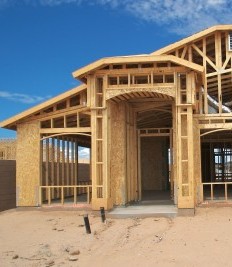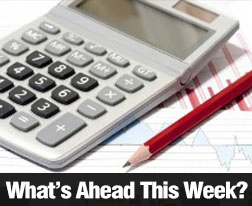How To Improve Your Credit Score For Better Financing Terms
 Imagine that you’ve found the perfect home and are ready to apply for financing. Your home loan approval amount comes back lower than you would have expected and at an interest rate significantly above what you have heard is available on the market.
Imagine that you’ve found the perfect home and are ready to apply for financing. Your home loan approval amount comes back lower than you would have expected and at an interest rate significantly above what you have heard is available on the market.
This could be because you have an average to poor credit score.
Mortgage lenders base interest rates on many things, but your credit score plays a large part. Anything between 720 and 850 will typically qualify for better interest rates. A mediocre score is usually between 660 and 719, and a low score is 659 and under.
If you have a lower score than you’d like, below are a few traits for you to follow of people who possess higher credit scores and secure the best home financing.
They don’t max out their cards.
It’s better to keep a low revolving balance on a few cards than to spend every dime allotted on one. The ratio of credit card balance to your credit limit is called credit utilization. The higher your credit utilization, the larger affect it can have one your credit score.
They make payments on time.
This is very likely the most important tip for your credit health. If you miss a payment on a term loan, credit card account or monthly home bill, then you could be turned over to collections, which will affect your score negatively. You will almost surely be reported as late to the credit bureaus, which will in turn drop your credit score precipitously. Absolutely make all of your payments before their due date.
They stay with one card.
Don’t close and open credit card accounts frequently. Each time you make a change to your line of credit, it affects your score. Even if you don’t want to be tempted to use a credit card, keep the account open and leave the card at home. According to the Fair Isaac Corporation (FICO), high credit achievers have accounts that are usually at least 11 years old.
Excellent credit could qualify you for a better interest rate, which might save you thousands of dollars over the life of the loan. So stay on top of your monthly credit bills and keep a low balance on just a few cards to watch your score steadily increase.
If you’re ready to learn more about your ability to purchase a home, call your trusted home financing professional today.

 You’ve got a new job offer across the country and you are planning to pack your things, buy a home and make the big move.
You’ve got a new job offer across the country and you are planning to pack your things, buy a home and make the big move. The S&P Case-Shiller Home Price Indices for April indicate that the housing recovery gained ground.
The S&P Case-Shiller Home Price Indices for April indicate that the housing recovery gained ground. Paying off the mortgage on your home faster means that you will not only have the satisfaction of owning your own home sooner, you will also have the benefit of paying much less in interest over the years.
Paying off the mortgage on your home faster means that you will not only have the satisfaction of owning your own home sooner, you will also have the benefit of paying much less in interest over the years. Comments by Fed chairman Ben Bernanke after Wednesday’s FOMC meeting caused havoc in financial markets as investors anticipated the potential effects of any rollback of the Fed’s policy of quantitative easing (QE). Chairman Bernanke said that the Fed may begin reducing its $85 billion monthly purchase of Treasury securities and MBS toward the end of this year.
Comments by Fed chairman Ben Bernanke after Wednesday’s FOMC meeting caused havoc in financial markets as investors anticipated the potential effects of any rollback of the Fed’s policy of quantitative easing (QE). Chairman Bernanke said that the Fed may begin reducing its $85 billion monthly purchase of Treasury securities and MBS toward the end of this year. The Federal Open Market Committee (FOMC) of the Federal Reserve decided to continue its current policy of quantitative easing (QE) based on current economic conditions. The Fed currently purchases $40 billion in mortgage-backed securities (MBS) and $45 billion in Treasury securities monthly.
The Federal Open Market Committee (FOMC) of the Federal Reserve decided to continue its current policy of quantitative easing (QE) based on current economic conditions. The Fed currently purchases $40 billion in mortgage-backed securities (MBS) and $45 billion in Treasury securities monthly. Are you buying a property as your second home? Perhaps you are looking for a small cottage or apartment where you can escape to for your vacations, or maybe you want to have another home closer to your relatives?
Are you buying a property as your second home? Perhaps you are looking for a small cottage or apartment where you can escape to for your vacations, or maybe you want to have another home closer to your relatives? U.S. housing markets are gaining as demand for homes exceeds available supplies in many areas. The National Association of Home Builders/ Wells Fargo Housing Market Index (HMI) for June increased by eight points over May’s reading to achieve a positive reading of 52. This last happened in August-September of 2002, when HMI monthly readings also jumped by eight points.
U.S. housing markets are gaining as demand for homes exceeds available supplies in many areas. The National Association of Home Builders/ Wells Fargo Housing Market Index (HMI) for June increased by eight points over May’s reading to achieve a positive reading of 52. This last happened in August-September of 2002, when HMI monthly readings also jumped by eight points.
 Last week’s news was relatively quiet with no data significant to the mortgage lending released until Wednesday, when the federal government announced a $138 billion budget deficit for May.
Last week’s news was relatively quiet with no data significant to the mortgage lending released until Wednesday, when the federal government announced a $138 billion budget deficit for May.